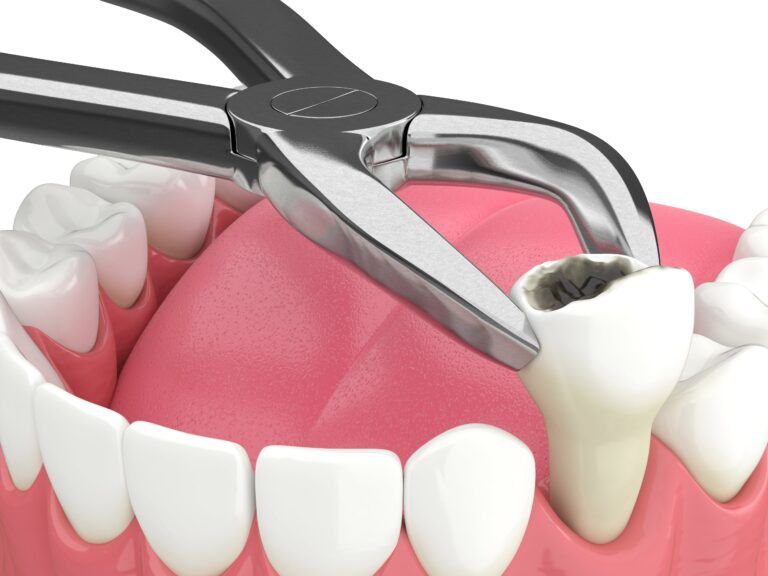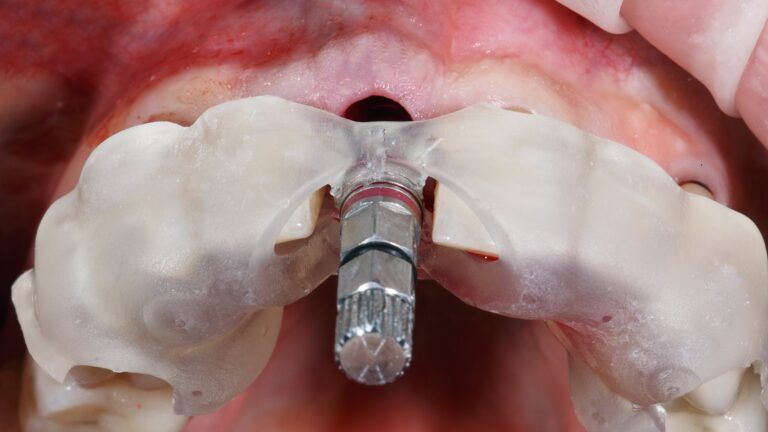Smiling is one of the most important things you can do for your overall health, both mentally and physically. Studies have demonstrated that people who smile more often are far happier, healthier, and tend to live longer than those who don’t. But what if you struggle with missing teeth or other dental issues which make it difficult to show off your beautiful grin? Thankfully, advancements in dentistry now provide patients with a reliable solution: dental implants! Dental implants not only restore function to the jaw and provide a boost in self-confidence—they also can be beneficial for achieving a fuller, brighter smile. In this blog, we will discuss how smiling can improve our health and how dental implants can help restore our smiles, improving our oral health and overall well-being.
The Many Benefits of Smiling
There are many benefits of smiling, both for our mental and physical health. Here are some of the most notable benefits:

- Reduces stress: Smiling triggers the release of endorphins, which are natural mood-enhancing chemicals that help reduce stress and anxiety levels.
- Lowers blood pressure: Smiling can help lower blood pressure, which is essential for maintaining good cardiovascular health.
- Boosts the immune system: When we smile, our body releases antibodies and white blood cells, which help fight off infections and diseases.
- Enhances mood: Smiling can help elevate our mood and make us feel happier. It can also help alleviate symptoms of depression and anxiety.
- Relieves pain: Endorphins released when we smile act as natural painkillers, which can help reduce the perception of pain.
- Improves relationships: Smiling is a powerful tool for building and maintaining positive relationships. It can help us connect with others, communicate effectively, and resolve conflicts.
- Increases productivity: When we smile, we feel more relaxed and positive, which can help boost our productivity and creativity.
- Helps us look younger: Smiling can help us appear younger and more attractive. It can also make us appear more approachable and friendly.
Overall, smiling is a simple and effective way to improve our mental and physical health. It can help reduce stress, lower blood pressure, boost the immune system, enhance mood, relieve pain, improve relationships, increase productivity, and help us look younger.
The Impact of Missing Teeth on Smiling
However, missing teeth can have a negative impact on our ability to smile and, in turn, our overall health. Missing teeth can significantly affect one’s ability to smile. When we smile, our teeth are one of the most noticeable facial features. If we have missing teeth, it can affect the symmetry of our smile, making it appear uneven or incomplete. This can lead to feelings of self-consciousness and low self-esteem, which can affect our mental and emotional well-being.

Additionally, missing teeth can affect the way our mouth functions, which can further affect our ability to smile. For example, missing front teeth can make it difficult to bite and chew food properly, leading to digestive issues and malnutrition. Missing teeth can also affect our speech, making it difficult to pronounce certain words and affecting our ability to communicate effectively.
Finally, missing teeth can lead to bone loss and gum recession, which can further affect the appearance and function of our mouth. Bone loss can lead to a sunken or collapsed facial appearance, while gum recession can cause sensitivity and pain.
Overall, missing teeth can have a significant impact on our ability to smile, affecting our self-esteem, social interactions, and overall quality of life. It is essential to seek treatment for missing teeth to restore the function and appearance of our mouth, and to improve our ability to smile with confidence.
Benefits of Replacing Missing Teeth with Dental Implants
This is where dental implants come in. Dental implants are a long-term solution for missing teeth. They are artificial tooth roots made of titanium, which are surgically implanted into the jawbone. Once the implant fuses with the bone, a dental crown is attached to the implant, restoring the look and function of a natural tooth. Dental implants have several advantages over traditional tooth replacement methods such as dentures or bridges. They are more stable and comfortable, allowing patients to eat and speak with ease. They are also more durable, with a success rate of up to 98%, making them a reliable long-term solution for missing teeth.

Furthermore, dental implants have a positive impact on our overall health. They improve our ability to chew, which can lead to better nutrition and digestion. A study published in the International Journal of Oral and Maxillofacial Implants found that dental implant treatment can also improve our overall quality of life, including physical and psychological well-being.
Dental implants can also have a significant psychological impact on a person’s self-esteem and confidence, particularly when it comes to smiling. When we have missing teeth, it can be challenging to smile confidently, which can affect our social interactions and overall quality of life. Dental implants can help restore our smile and improve our self-esteem, leading to a better sense of well-being.
Here are some of the psychological benefits of dental implants:
- Improved self-esteem: When we have missing teeth, it can lead to feelings of self-consciousness and low self-esteem. Dental implants can help restore our smile and improve our appearance, leading to greater confidence and self-esteem.
- Enhanced social interactions: Smiling is an essential aspect of social interaction. When we feel self-conscious about our smile, it can affect our ability to connect with others. Dental implants can help restore our smile, leading to more positive social interactions and relationships.
- Better quality of life: Dental implants can help improve our ability to eat, speak, and smile with confidence, leading to a better quality of life. We can enjoy a wider range of foods and activities, and feel more comfortable and confident in social situations.
- Reduced anxiety and depression: When we feel self-conscious about our appearance, it can lead to feelings of anxiety and depression. Dental implants can help improve our appearance and self-esteem, leading to a reduction in these negative emotions.
- Long-lasting results: Unlike other tooth replacement options such as dentures, dental implants offer a long-term solution for missing teeth. Knowing that our smile will remain intact for years to come can provide a sense of security and peace of mind.
In Conclusion
In conclusion, smiling is an essential part of our overall health and well-being as it provides mental, physical, and psychological benefits. Unfortunately, missing teeth can have a negative impact on our ability to smile and our overall health. However, replacing missing teeth with dental implants can help make a person want to smile more often. Dental implants are a reliable long-term solution for missing teeth that can improve oral health and overall well-being. To learn more about how dental implants can make you want to smile more, schedule a consultation with New Teeth Chicago Dental Implants today!

Irfan Atcha, DDS, DICOI, DADIA at New Teeth Chicago Dental in Chicago, Illinois is a board-certified general dentist and a nationally recognized expert in dental implants, cosmetic dentistry, and sedation dentistry. Dr. Atcha is now serving patients in Naples, Bonita Springs and SW FL area with All-on-4 implants, teeth-in-a-day, same day dental implants and the complex zygomatic dental implants for the no-jaw bone solution approach. To schedule a consultation please email Dr. Atcha at teethforyou@gmail.com.





